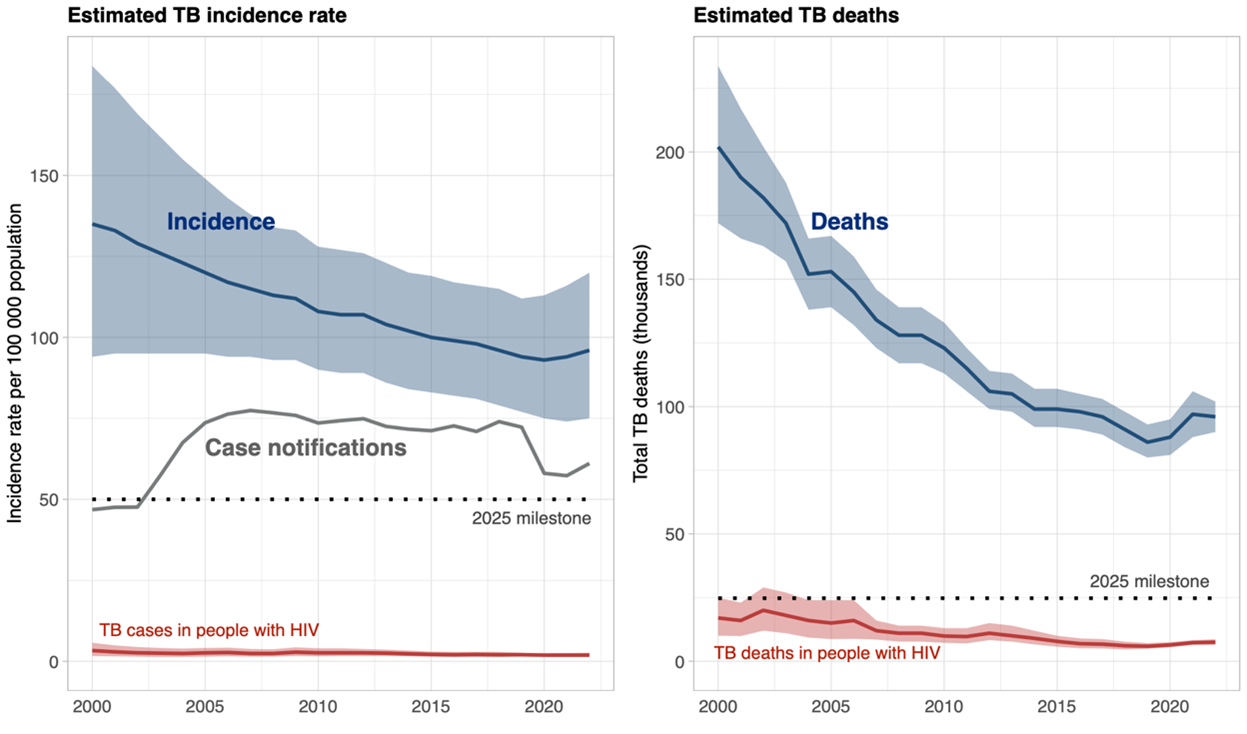“Unveiling Progress: World TB Day Marks Successes and Challenges in TB Response in the Western Pacific Region”
The Western Pacific Region has made significant strides in TB care and prevention, with a remarkable 53% reduction in TB deaths and 29% decrease in incidence rate compared to levels in 2000 (Figure 1). These advancements are underscored by the region’s notable progress in expanding rapid diagnostic tools, implementing systematic screening, and scaling up programmatic management of drug-resistant TB which includes the adoption of new drugs and shorter regimens. Additionally, efforts to improve TB testing for HIV and enhance anti-retroviral therapy coverage among TB/HIV co-infected patients have contributed to this positive trend.
 Figure 1:Estimated TB incidence rate and TB deaths, 2000-2022, Western Pacific Region
Figure 1:Estimated TB incidence rate and TB deaths, 2000-2022, Western Pacific Region
Despite these achievements, TB remains a pressing public health issue in the Region. In 2022 alone, an estimated 1.9 million TB cases and 104,000 related deaths were recorded, making a 3% increase in incidence and a 13% rise in deaths compared to the pre-pandemic level in 2019. These figures reflect the significant impact of the COVID-19 pandemic on TB services, as evidenced by notable shortfalls in TB case notifications reported in the Region for 2020 and 2021. In those years, reported TB cases were 21% and 23% lower than predicted, respectively, highlighting the pandemic's disruptive effect.
In the Region, over 35% of the estimated new cases are not being diagnosed or reported, emphasizing the urgent need to address gaps in TB case detection and reporting. Responding to these challenges, countries and areas within the Region, particularly regional high-burden countries such as Cambodia, Lao People’s Democratic Republic, Philippines, and Viet Nam, intensified their efforts in TB case detection in 2022. As a result, the gap (the percentage of reported cases in predicted cases) reduced from 23% in 2021 to 18 % in 2022, and case detection is further increased in 2023. Accelerated efforts and investments including in research are needed to increase the access to prevention, treatment and care towards ending TB by 2030.
Related links: